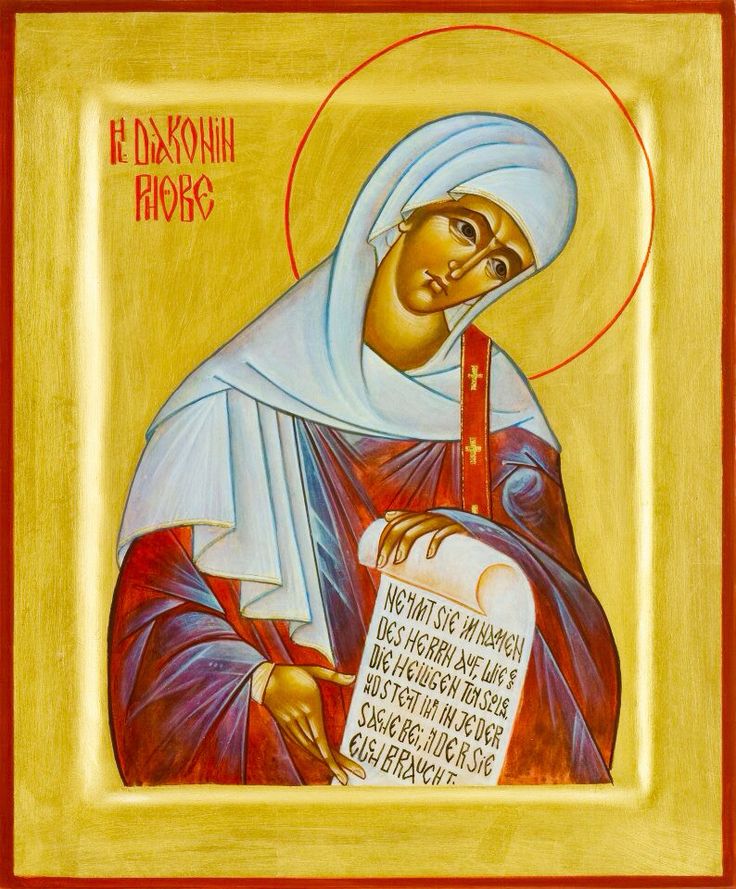Yes. Some early writers preferred the term deaconness, and others called them deacons as with the men. Still others implied that these women were simply wives of deacons. The existence of the female office of deacon is not in question, however. What the responsibilities of the office were is less certain: whether or not female deacons carried out the same ministries as their male counterparts.
The scriptural basis of the office depends on Paul's reference in Romans to "Phoebe our sister, who is a minister (diakonos) of the church." Another passage in 1 Timothy describes the qualifications of a deacon and continues, "Women, similarly, should be dignified, not slanderers, but temperate and faithful in everything." The passage continues to delineate qualities of deacons, and it is fair to assume that the women in question were also deacons. Early in the 2nd century, Pliny the Younger notes the presence of women deacons, and documents from the church of the East mention them, including the Council of Chalcedon (451) which makes note of their ordination.
What did female deacons do? Acts of the Apostles describes the first seven male deacons as preaching, teaching, baptizing, healing the sick, casting out demons, serving the poor of the community, and being martyred for their faith. Paul adds the job of fundraising to that resume. Luke describes women as the financial patrons of Jesus' ministry in chapter 8: they might fit Paul's concept of the deacon role. Paul's coworkers Pricilla, Chloe, and Lydia also served, taught, and led the community in various ways, although the term deacon was not scripturally applied to what they do.
In the 3rd-century Syrian church, deaconesses assisted at the baptism of women, and visited the sick and elderly. The Apostolic Constitutions of the 4th century describe deaconesses as virgins or widows, subordinate to male deacons, who served their communities based on current pastoral needs. This document also includes the ordination ritual for deaconesses, who received laying on of hands from the bishop. Like her male counterpart, the deaconess did have a liturgical role, but was not eligible to preach. For the first six centuries, the office of the female deacon was well established in the East.
Early evidence in the Western church shows opposition to an ordained office for women deacons, although their service to the church is uncontested. As late as the sixth century, places like Gaul still utilized widow-deaconesses.
Scripture: Luke 8:1-3; Acts of the Apostles 6:1—7:60; 8:4-40; 16:14-15, 40; 18:1-3, 18-28; Romans 16:1-4; 1 Timothy 3:8-13
Books: A New Phoebe: Perspectives on Roman Catholic Women and the Diaconate - ed. Virginia Ratigan (Kansas City: Sheed & Ward, 1990)
Women of Bible Lands - Martha Ann Kirk (Collegeville, MN: Liturgical Press, 2004)




